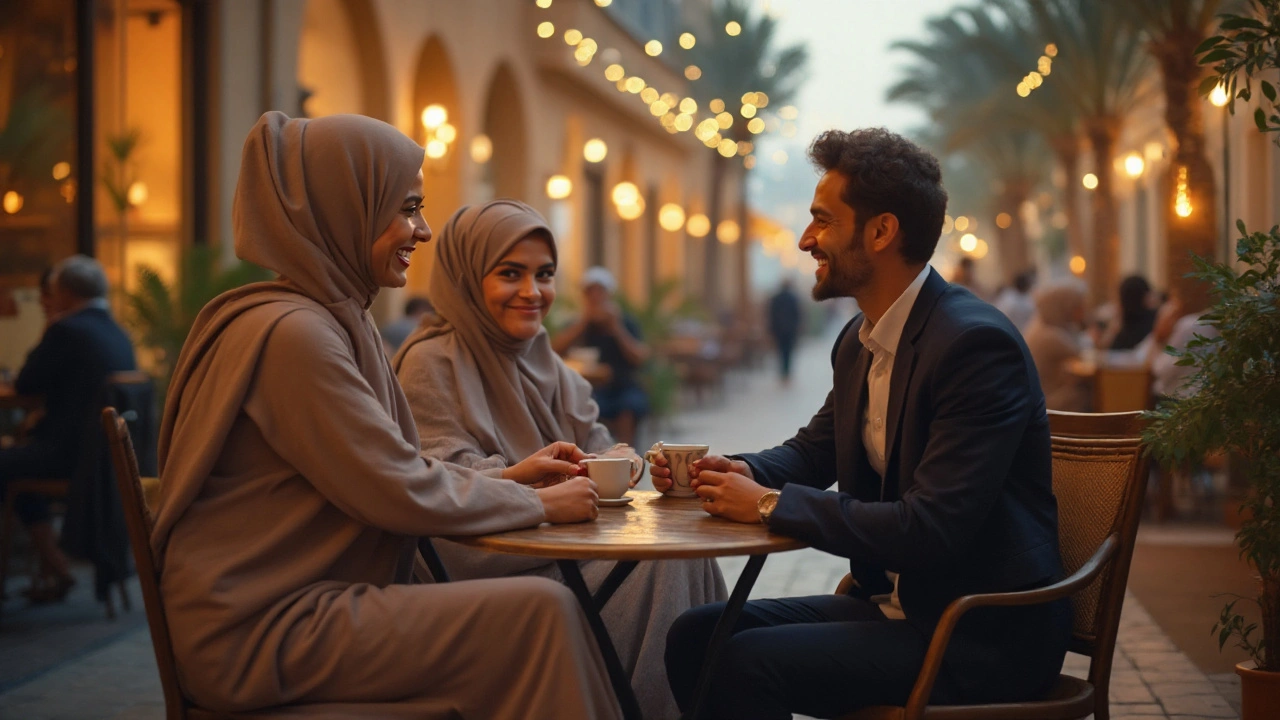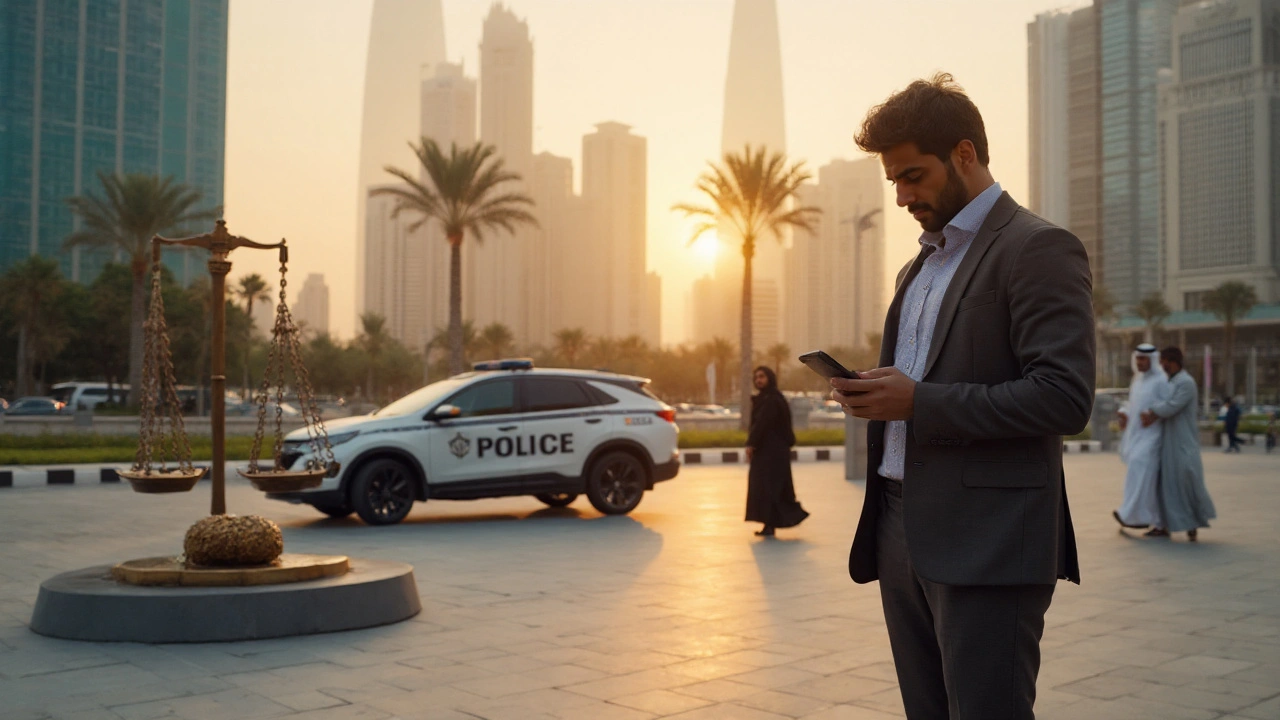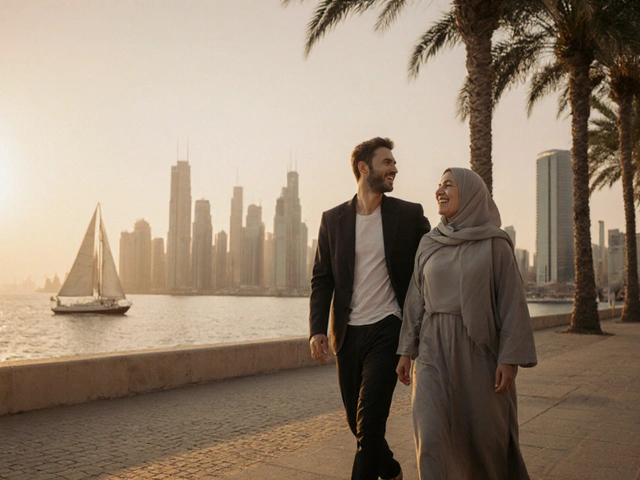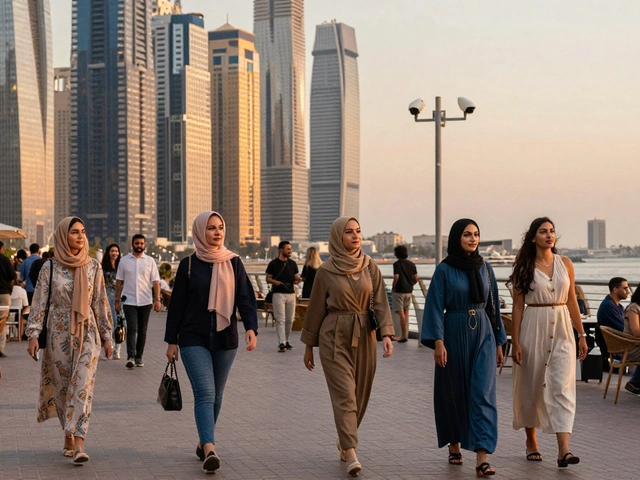If you typed girls in dubai for sex, pause for a minute. Dubai is glamorous, yes. But it’s also one of the strictest places on earth when it comes to sex work, public decency, and online solicitation. What you don’t know can genuinely get you fined, detained, or deported. This guide explains the law, the real risks, and respectful, legal ways to socialize without stepping into a legal minefield.
Sex work in Dubai is a set of activities involving commercial sexual services within the Emirate of Dubai. It is illegal under the United Arab Emirates’ criminal law framework, with penalties that can include fines, detention, and deportation.
TL;DR
- Sex work and solicitation are illegal in the UAE; penalties can include fines, detention, and deportation.
- Expect strict policing offline and online; lewd messages or ads can trigger cybercrime cases.
- Human trafficking and exploitation do exist-learn red flags and never engage if you suspect coercion.
- Legal alternatives: licensed nightlife, private social events, and mainstream dating apps (used lawfully).
- Protect your health, privacy, and wallet: avoid scams, keep consent clear, and don’t share sensitive data.
What the law actually says (and how it’s enforced)
United Arab Emirates is a federation of seven emirates (including Dubai and Abu Dhabi) with a civil-law system influenced by Islamic legal principles and federal decrees.
Dubai is a tourism-driven city of over three million residents, known for luxury hotels, nightlife, and strict public order laws.
UAE Penal Code (Federal Decree-Law No. 31 of 2021) is a criminal code that outlaws prostitution, brothel-keeping, and solicitation. Penalties can include fines, jail, and removal from the country.
UAE Cybercrime Law (Federal Decree-Law No. 34 of 2021) is a law governing online conduct. Lewd content, explicit offers, or arranging illicit services via apps or messaging can lead to prosecution.
Dubai Police is a law enforcement agency responsible for policing in Dubai, including vice operations, anti-trafficking efforts, and an e-crime reporting portal.
Laws in the UAE have been updated several times since 2020, but one constant remains: prostitution and solicitation are illegal. On the ground, enforcement is active in nightlife districts and hotels; online, moderation and cybercrime units watch for explicit ads, lewd messages, and payment trails. If you’re a visitor, your immigration status magnifies the stakes-tourists and expats can face swift deportation after legal trouble.
Authoritative references to check: the UAE Government Portal for current federal laws, Dubai Police for public advisories, and your embassy’s travel guidance (for example, the UK FCDO or US State Department) for risk updates.
Exploitation is real: know the red flags and act responsibly
Human trafficking is a crime involving the recruitment, transport, or harboring of people by coercion, deception, or abuse for exploitation. The UAE criminalizes trafficking and runs awareness and enforcement programs.
Red flags in nightlife or online spaces include: restricted movement (someone “managed” by a third party), identical scripted messages across profiles, visible fear, confiscated passports, or sudden pressure for payments to “handlers.” If you see signs like these, step back. Participation fuels exploitation-and in Dubai, it also drags you into legal jeopardy.
If you believe someone is in immediate danger, contact local authorities. For non-urgent concerns, use official online reporting portals. When in doubt, disengage and prioritize safety.
Public decency, hotels, and the gray zones that trip people up
Public displays of affection can attract unwanted attention. Intoxication in public spaces can, too. Hotels may require guest registration and can refuse entry to unregistered visitors; staff will follow the law first, not “look the other way.” Don’t assume that a luxury setting means lax rules-security teams are trained to escalate issues fast.
Payment trails also matter. Suspicious card charges to “spa” or “salon” fronts can trigger hotel or bank scrutiny. Messaging apps are not private if there’s a complaint: screenshots become evidence, and cybercrime laws apply.
Legal ways to meet people (that don’t put you at risk)
There’s a huge difference between socializing and soliciting. Focus on normal, lawful venues and conversations, and keep everything consensual and respectful.
Online dating applications are mobile or web services that connect adults for dating and relationships. Using them for explicit solicitation or distributing lewd content can violate cybercrime and decency laws in the UAE.
Plenty of people in Dubai use mainstream dating apps to find friends, dates, and long-term partners. Keep profiles clean (no explicit images or offers), avoid sexual chat, and don’t propose paid encounters. Meet in public places-coffee shops, hotel lounges, or licensed venues.
Nightlife is vibrant in areas like DIFC, Dubai Marina, JBR, and Business Bay. Enjoy live music, restaurants, and lounges. If someone propositions you, decline and move on. Don’t arrange private “services,” don’t transfer money, and don’t give out your room number or personal details.
Licensed spa is a business permitted by Dubai authorities to offer massage and wellness treatments. Sexual services are prohibited, and both providers and clients can face penalties for violating this rule.
Book reputable spas for wellness only. Any suggestion of “extra services” is a legal red flag-leave immediately.
Comparison: legal social options vs. illegal activities
| Activity | Legal status | Typical setting | Risk level | What can go wrong |
|---|---|---|---|---|
| Dining, concerts, lounges | Legal when respectful | Licensed venues (DIFC, Marina, JBR) | Low | Public decency issues if intoxicated or overly affectionate |
| Mainstream dating apps used for dates | Legal when non-explicit | Public meetups | Low-Medium | Catfishing, data privacy issues if you overshare |
| Escorting/prostitution | Illegal | Online solicitation, hotels | Very High | Arrest, deportation, trafficking entanglement |
| Unlicensed “massage” offering sexual services | Illegal | Apartments, backrooms | Very High | Police stings, scams, theft |
| Lewd messages/explicit content online | Illegal | Chat apps, social media | High | Cybercrime charges, blackmail via screenshots |
Health, consent, and privacy: non-negotiables
Consent is a clear, voluntary, ongoing agreement between adults to participate in intimate activity. It cannot be given under coercion, intimidation, or intoxication.
Never pressure anyone. Read a “no” as no. If alcohol is involved, slow down-not just for ethics, but because perceptions can blur and land you in trouble.
Sexually transmitted infection (STI) is a infection passed through sexual contact. Prevention includes barrier protection and regular testing in your home country or at reputable clinics.
Health-wise, protect yourself in your home country and avoid risky behavior while traveling. In Dubai, buying or carrying condoms isn’t illegal, but the context matters-keep things discreet and lawful.
Privacy-wise, do not share passport photos, hotel booking pages, or financial details with strangers online. Blackmail scams are common worldwide: someone screenshots your chat, threatens to report you unless you pay. The simplest defense is to keep conversations clean and non-explicit.

About escort agencies, brothels, and why “everyone’s doing it” is wrong
Escort agency is a business that arranges paid companionship. In the UAE, any arrangement involving sexual services is illegal; brothel-keeping and profiting from prostitution are crimes.
People sometimes claim “it’s everywhere-no one cares.” That’s wishful thinking. Yes, you’ll see suggestive signals in some nightlife zones, and you might receive spam messages on chat apps. But arrests, fines, and deportations happen. There’s also the moral reality: exploitation exists, and money often flows to handlers, not the person you think you’re helping.
Neighborhood cues and cultural context
DIFC, Downtown, Business Bay, Dubai Marina, and JBR are packed with licensed venues, art events, and hotel lounges. Dress codes skew smart-casual to upscale. Alcohol is served in licensed premises; public drunkenness can still get you ejected or worse.
Hotels maintain guest policies, sometimes requiring ID registration for visitors. Security teams cooperate with authorities. If a stranger pushes to go to your room, treat that as a risk signal-for your safety and your legal exposure.
Connected topics (for deeper research)
Broader legal context: the federal criminal code and cybercrime statutes. Narrower topics: hotel guest policies, licensing rules for wellness businesses, and specific neighborhood etiquette. Travelers also look up embassy advisories, anti-trafficking initiatives, and the difference between legal socializing and illegal solicitation.
When you zoom out, this article sits in a “safety-first travel and adult conduct” cluster: laws and penalties → cultural norms → lawful social options → health/privacy → scam avoidance → reporting harm.
Actionable safety checklist
- Stick to licensed venues; avoid backroom offers, apartment “salons,” and coded online ads.
- Keep chats non-explicit; don’t share nudes, room numbers, or payment screenshots.
- Meet dates in public places; let a friend know your plan and location.
- Walk away from pressure, third-party “handlers,” or requests for cash transfers.
- If you suspect trafficking, disengage and report via official channels.
- Respect consent and boundaries; if anyone is intoxicated, call it a night.
- Review your embassy’s UAE travel guidance before you go.
Key entity notes you can verify
To check the latest legal language, consult the UAE Government Portal (Crimes and Penalties), Dubai Police advisories (including e-crime), and reputable international organizations for trafficking definitions and victim support frameworks.
Brothel is a premises used for commercial sex. Operating or visiting such premises is illegal in the UAE.
Public decency law is a set of rules prohibiting indecent acts and lewd conduct in public spaces in the UAE.
Next steps and troubleshooting
- If you came for casual fun: switch your mindset to lawful socializing-music nights, group dinners, art events, and non-explicit dating.
- If you already sent risky messages: stop immediately, don’t pay blackmailers, and save evidence to report via official channels.
- If someone pressures you in a venue: involve venue security; they deal with this often and will de-escalate.
- If you’re unsure whether something is legal: assume it’s not. In Dubai, caution beats regret.
Frequently Asked Questions
Is prostitution legal in Dubai?
No. Prostitution, solicitation, and brothel-keeping are illegal under the UAE Penal Code. Enforcement is active in nightlife districts and online. Penalties for offenders can include fines, detention, and deportation for non-citizens.
Can tourists use escort services in Dubai without issues?
No. Paying for sexual services is illegal, and tourists face the added risk of swift deportation. Even arranging such services online can lead to cybercrime charges. Stick to lawful socializing in licensed venues or mainstream dating used respectfully.
Are dating apps allowed in the UAE?
Yes, many residents use mainstream dating apps. However, explicit content, lewd proposals, and arranging illegal services through apps are prosecutable. Keep profiles and chats clean, meet in public, and avoid sharing sensitive personal data.
What are the penalties for solicitation in Dubai?
Penalties vary by case but can include fines, detention, and deportation. Online solicitation can additionally fall under cybercrime statutes. Hotels, banks, and venues cooperate with authorities; do not assume privacy if a complaint is raised.
How can I recognize signs of human trafficking?
Common signs include restricted movement, third-party “handlers,” scripted communication, visible fear, and pressure to pay someone else. If you suspect trafficking, disengage and report via official channels. Participating harms victims and exposes you to prosecution.
Are massage parlors in Dubai legitimate?
Licensed spas and wellness centers are legitimate and provide non-sexual services. Any offer of sexual services is illegal. If a “spa” operates from an apartment or suggests extras, leave and avoid payment; such setups are often stings or scams.
Can I bring a guest to my hotel room?
Hotels set their own visitor policies and may require guest registration. Staff can refuse entry and will escalate suspected illegal activity. Never attempt to bypass procedures, and avoid proposing paid encounters-both can lead to serious consequences.
What should I do if I’m being blackmailed after a chat?
Stop contact, don’t pay, collect evidence (screenshots, usernames, timestamps), and report via official e-crime channels. In future, avoid explicit chats and never share IDs, booking confirmations, or financial screenshots with strangers.
Where can I meet people legally in Dubai?
Licensed lounges, live music nights, art openings, group dinners, and mainstream dating apps used respectfully. Keep conversations non-explicit, meet in public, and focus on mutual interests rather than transactional offers.
Do the laws apply differently to expats and tourists?
Everyone is subject to UAE law. Tourists and expats often face immigration consequences-including deportation-on top of criminal penalties. Don’t assume leniency based on nationality or hotel tier.




